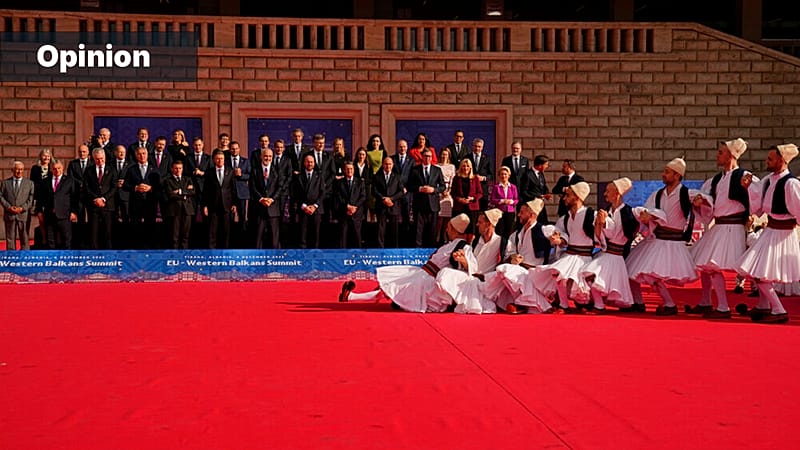Albania and the European Union: A shared journey toward a common future

In Albania, the process of European Union accession is not just a policy goal on a government agenda, it is the defining journey of a nation.
Its EU path embodies the aspirations of a European country that, for nearly five decades, was politically self-isolated by the most brutal communist regime, and the hopes of a nation that, once set free, has consistently demonstrated a commitment to European values: democracy, the rule of law, human rights, solidarity and peace.
There is no denying that despite the solemn Thessaloniki promise in 2003, the path to the EU for the Western Balkans has been slow, and in the judgement of a large majority of its citizens, discouraging and very frustrating.
It is no secret that, after Croatia's accession in 2013, enlargement was hardly on the EU agenda for nearly a decade. Thankfully, this has changed.
Albania has approached every step of this process with strong determination and open-eyed realism. It has continued to focus on key domestic reforms, not simply as a technical or bureaucratic check-boxing exercise but as a thorough, transformative drive, deeply rooted in institutional culture and societal behaviour.
Through an unparalleled comprehensive judicial reform which has redefined its justice system, deep institutional and legislative changes in public administration, by upholding human and minority rights and doubling down on anti-corruption measures, as well as with its continued complete alignment with the EU’s Common Foreign and Security Policy, Albania has shown, with deeds not words, its irreversible commitment to the European path.
This unshaken belief and the renewed attention to enlargement have determined the pace of negotiations: in less than a year, it has remarkably opened 28 chapters and is on the right path to open all negotiating chapters before the end of this year.
Enlargement is not a choice — it is a necessity
Enlargement policy is also a test of the EU’s ability to look inward and outward at the same time — to strengthen itself while embracing those who share its goals and principles.
EU accession is not charity; as previous enlargement rounds have shown, it is an investment in Europe’s stability, security, credibility and prosperity.
In times of geopolitical uncertainty, completing the European project through enlargement is not a choice — it is a necessity. What used to be enlargement fatigue must give way to enlargement confidence.
Albania’s expectations are clear: it aims to close technical negotiations within 2027 and be in a position to join the EU by 2030.
It seems ambitious but it is realistic and feasible. Albania advocates for a fair, merit-based process that recognises tangible progress and sustains momentum. Predictability, clarity and credibility are crucial for public trust, both for member states and candidates alike.
When citizens see concrete results and clear benefits, their faith in Europe deepens.
As leaders gather to discuss enlargement and the future of the European Union, Albania stands with an open heart and a clear message: joining Europe is our choice, not least because we are part of its foundation, its history and identity.
This is why, for us, enlargement is reunification, representing the fulfilment of a shared European project that includes all those who share its interests and uphold its values.
His Excellency Ferit Hoxha serves as Ambassador and Head of Mission of Albania to the European Union.
Euronews will broadcast its flagship EU Enlargement Summit live on its television and digital platforms, including YouTube, from 2 pm to 5 pm CET on Tuesday.
Today

